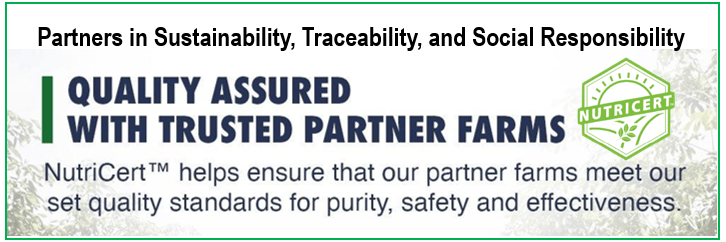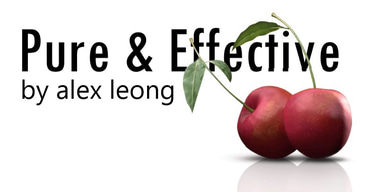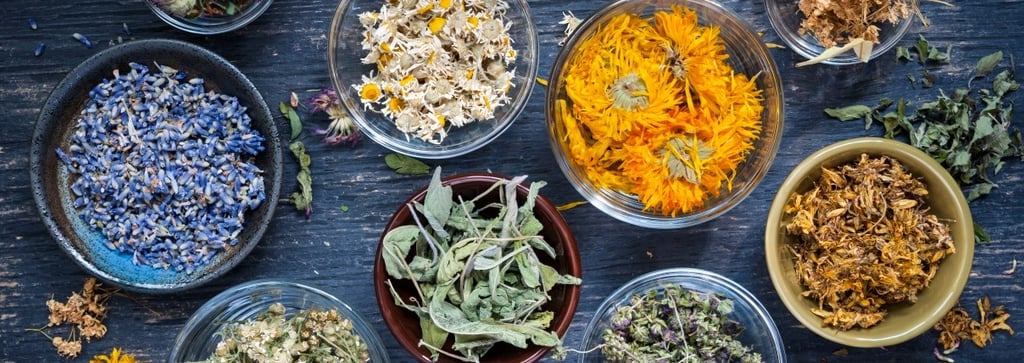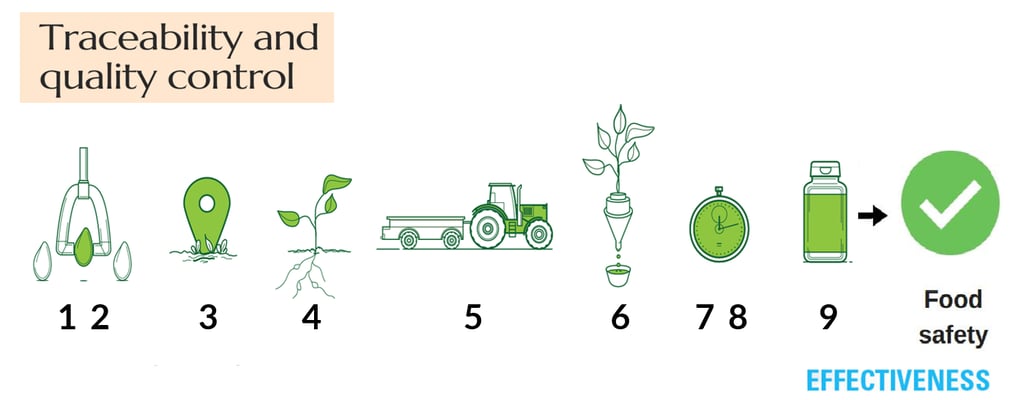The Truth Behind Your Favorite Botanicals: Why Purity and Traceability Matter
Botanicals are essential in our kitchens and wellness routines, celebrated for their flavors, health benefits, and ability to restore balance to our bodies. However, there's a hidden issue that can compromise their integrity: adulteration. Your favorite herbs and spices might not be as pure as you think.
Unveiling Adulteration
Adulteration is as real as reality! No matter how beautiful the packaging or enticing the marketing, many herbal supplements aren't what they claim to be. A recent 2024 review found over 50% of Ginkgo leaf extract samples to be adulterated, with similar issues in black cohosh, echinacea, elder, and turmeric. And it’s not just a recent problem—a 2019 study using DNA testing revealed that nearly 30% of herbal products across 37 countries didn’t contain what was listed on the label. In fact, adulteration rates were particularly concerning in Australia, where 79% of products were found to be adulterated, followed by Europe at 47%, North America at 33%, and Asia at 23%.
This is a widespread issue that affects more than just one or two herbs. Turmeric, for instance, is a prime example of how adulteration can compromise quality. From color enhancement to ingredient substitution, turmeric is often tampered with to meet demand. Want to know how it’s done? The Hidden Truth: Turmeric Adulteration in the Herbal and Spice Industry uncovers the shocking ways turmeric, and other botanicals, can be altered without consumers realizing.
This all makes it clear: we need brands that prioritize transparency and traceability. Without these, there’s no guarantee of purity. More on that next.
Why Blind Trust Isn't Enough
Trusting a brand blindly can lead to consuming products that aren’t what they seem. Whether you're buying from a retailer, manufacturer, or direct producer, it's crucial to verify their commitment to traceability. Do they transparently share their sourcing and manufacturing practices? Do they conduct thorough product testing?
It's pretty simple to find out if a brand, retailer, or manufacturer incorporates traceability—just type the brand name followed by “traceability” in your search engine. If the search results show news or updates, they're likely doing it right! Another simple and direct way to find out is to visit their website. Still unsure? Shoot them an email or use their contact form to ask. A reputable company should be more than willing to answer your questions and provide the information you need.
As a reputable brand, Nutrilite has been dedicated to traceability long before it became a buzzword! Their traceability process began over 80 years ago when founder Carl Rehnborg prioritized controlling every step from growth to harvest to final processing. Over the decades, his philosophy has transformed into an outstanding program that ensures products bearing the Nutrilite name remain pure, safe, and effective. For a quick insight into their commitment, check out the video "Center for Optimal Health" by We Are Gorilla—it's just 4 minutes and packed with valuable information!
Beyond the COA: The Hidden Pitfalls
In the supplement industry, Certificates of Analysis (COAs) are heralded as the gold standard for verifying quality—purportedly confirming purity, potency, and safety. Yet this trust is dangerously misplaced. Behind the scenes, unethical practices run rampant:
"Dry labbing: Laboratories fabricate results without testing, often colluding with companies chasing cheaper costs or guaranteed passing grades. As industry expert Ed Wyszumiala warns, "Companies using dry labs know exactly what they're doing." For every lab caught, countless others operate undetected.
"Lab shopping": Brands hunt for facilities known to deliver favorable—or outright falsified—results. Some "labs" exist solely to produce fraudulent paperwork.
The deeper flaw? COAs ignore supply chain realities. Ingredients pass through multiple hands, each step ripe for contamination or adulteration. Without traceability, even valid COAs become meaningless—leaving consumers unprotected against misrepresented or hazardous products.
This systemic rot doesn’t just risk safety; it punishes ethical brands while rewarding fraudsters. A COA is only as credible as the lab behind it and the company demanding integrity. Relying on them blindly? That’s not diligence—it’s delusion.
The Evolution of Organic Greenwashing
The same dysfunction enabling COA fraud has fueled organic greenwashing for decades. The playbook has only grown more sophisticated:
Then: The USDA Scandal Era (2010s)
Former USDA inspector Mischa Popoff exposed 40% of "certified organic" products contained banned pesticides, thanks to: 1) "Paper organic" farms rubber-stamped without on-site testing, and 2) Bribes for fake certificates, especially in Brazil, China, and Malaysia.
Now: Global Loopholes (2024–2025)
Australia’s "2% Organic" Sham: Domestic products can wear the "organic" label with just 2% organic ingredients—no certification required. Honest farmers compete against liars.
India’s Certification Charade: Despite new "Unified Organic" logos: 1) "Natural" cosmetics hide insect-derived dyes (e.g., carmine from crushed beetles). 2) "Pesticide-free" produce lacks farm audits. Even labels are gamed, with industries creating fake "eco" seals (e.g., Canada’s logging-backed Sustainable Forestry Initiative).
The Unchanged Truth
Organic labels—USDA, Australian, or Indian—still fall short where it matters most: full supply chain visibility and post-certification verification. While the USDA’s Strengthening Organic Enforcement rule marks the largest regulatory update since 1990 (pledging increased oversight) fraudulent certificates still proliferate, often without the knowledge of named operators or certifiers.
Until regulations demand radical transparency, traceability remains the only antidote. Not just farm-to-table—but seed-to-supplement, batch-to-bottle proof. The verdict? Trust isn’t printed on labels. It’s built through unbroken chains of evidence.
Ethical Responsibility
Traceability isn't just about product safety; it's also about ethical business practices. Brands that prioritize traceability are often committed to more than just quality control—they also uphold fair treatment for farmers, communities, and animals throughout their supply chain. This means they actively work to prevent exploitation, avoid unethical practices like child labor, and ensure fair wages and working conditions. By supporting brands that are transparent and accountable, you're not just getting high-quality products; you're also contributing to a more ethical and sustainable industry. Your choice helps promote fairness and respect in every step of the supply chain, making a positive impact on both people and the planet.
Ensuring Purity and Safety
While adulteration involves deliberate additions of inferior ingredients or cheaper substitutes to bulk up the product, contamination refers to the presence of harmful substances such as pesticides or residues, which can result from farming or processing practices. Both contamination and adulteration are prevalent issues in the herb and spice industry.
The result? The quality and effectiveness of the herb or spice are diminished. Ignoring this practice is not just naive but potentially harmful to consumers. These issues underscore why choosing brands committed to rigorous testing and traceability is so important.
Ignorance is far from bliss here! Not only could you be wasting your money on impure, unsafe, and ineffective supplements—the very ones meant to improve your health—but you could also be unknowingly stressing your body with harmful substances. These might not show immediate effects but could cause problems down the road.
The whole point of using herbs and spices is to help restore balance and boost your health, not to add unnecessary risks or disappointments. Choosing products that are truly pure and safe ensures you're supporting your body's wellness goals, not undermining them. For more insights into the risks posed by contaminated products, check out our article on Contaminated Botanicals: The Hidden Dangers in Dietary Supplements.
The Importance of Traceability
So, how can we ensure that what we consume is safe and genuine? Enter traceability. This means understanding the journey of our herbs and spices—from their origins on the farm to their processing and arrival in our kitchens. It's like following a botanical detective story, ensuring every step maintains the purity and safety of the product.
At the core, the effectiveness of herbs and spices lies in their purity and safety. Regardless of how common a spice or herb is, whether it’s the whole plant or its extracts, its true benefits shine through when it's pure and uncontaminated. Next time you reach for that bottle of turmeric or ginkgo, consider verifying its traceability to ensure you’re getting the real deal.


Brands that are serious about traceability are committed to the entire process, not just the final sale. They rigorously test and verify their products at multiple stages, ensuring they are free from contaminants and adulterants. This applies not only to herbs and botanicals but to probiotics as well (Use Google Translate to view this page in English) ensuring a holistic approach to product safety.
The most thorough brands take traceability further—documenting everything from scientific formulation to manufacturing processes, packaging standards, safety validations, and even final shipping logistics. Every critical detail is accounted for in this transparent chain of custody.
Even China recognizes this imperative, making significant strides toward full traceability for key Traditional Chinese Medicine (TCM) products within five years. While complex to implement, such comprehensive systems prove their worth by delivering unmatched ingredient integrity from source to consumer.
Harnessing Synergy
When botanicals are pure and safe, combining them synergistically enhances their benefits. Synergy means their combined effects are greater than the sum of their parts. This is the magic of botanical synergy. There's something special about how spices work together! Many times, they're used in combination, enhancing each other's flavors and potential health perks.
So, it's all about finding that tasty synergy! However, when exploring spice synergy, understanding purity becomes crucial. Achieving true synergy is only possible when each ingredient is free from impurities or adulterants. Most importantly, synergy is not about adding herbs for the sake of it but ensuring each formulation is backed by science and research for safety and efficacy.
Return to:


Consider Nutrilite as a prime example. They are ridiculously detailed in their approach. Every botanical ingredient undergoes an uncompromising nine-step traceability process, starting with choosing the botanicals. Just like people have unique DNA, plants do too. However, since plant DNA isn’t specific to parts like roots, leaves, or bark, they use a method called phytochemical fingerprinting (video) to identify them. This involves breaking down the plant’s chemical components and analyzing them to create a distinctive profile for each part. This process helps prevent substitution or falsification (adulteration) of botanicals, therefore giving you products that work and the peace of mind you deserve.
While they manage this traceability process effectively on their own farms in Trout Lake (East and West), Mexico, and Brazil (this farm was recognized as Brazil's Most Sustainable Farm in 2023), they also work with partner farms around the world for plants that can’t be grown in these regions. To maintain the same high standards across all locations, Nutrilite employs its Nutricert certification. This certification ensures that partner farms adhere to stringent criteria, matching the purity, safety, and ethical practices of Nutrilite’s own operations.






